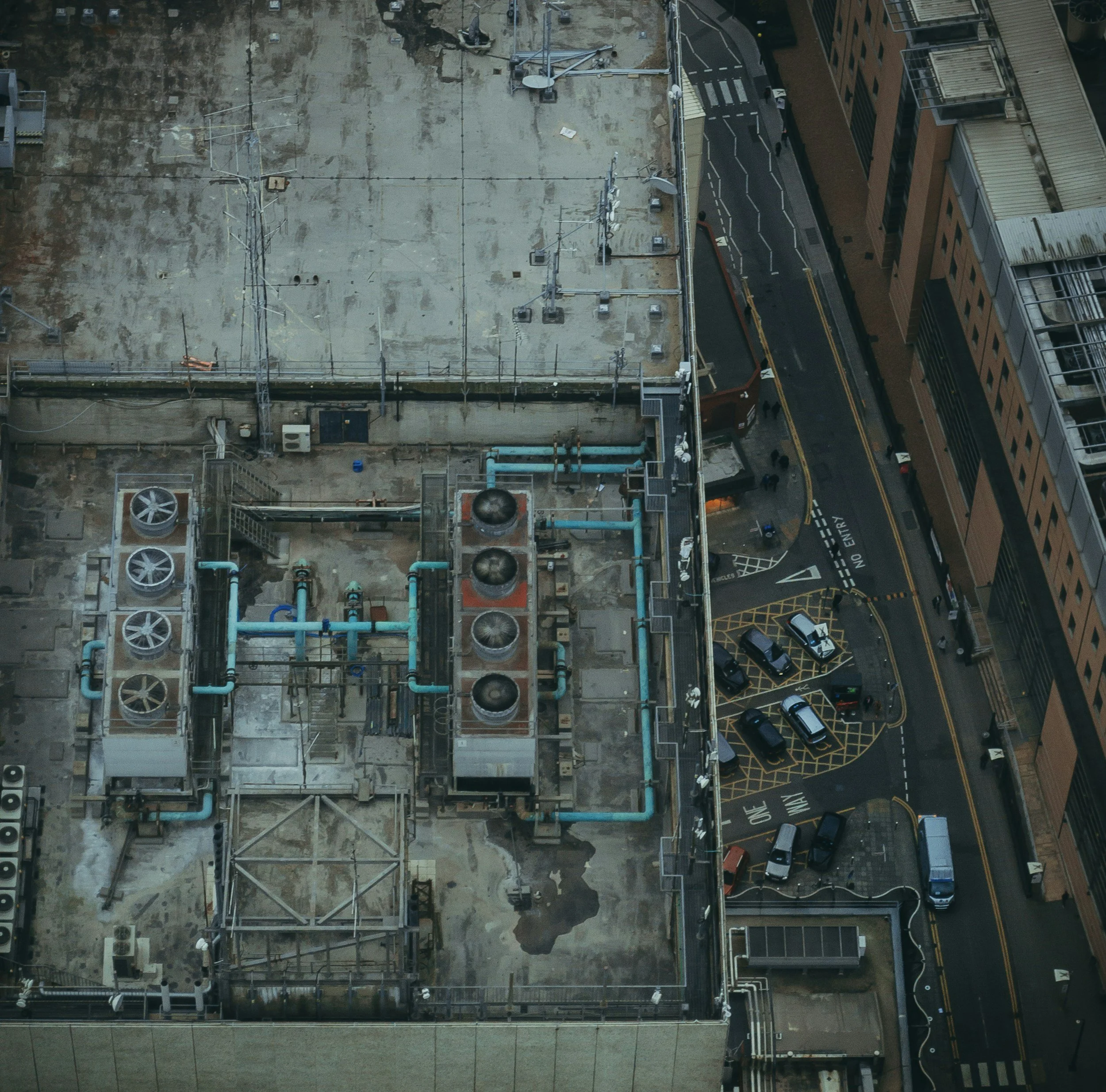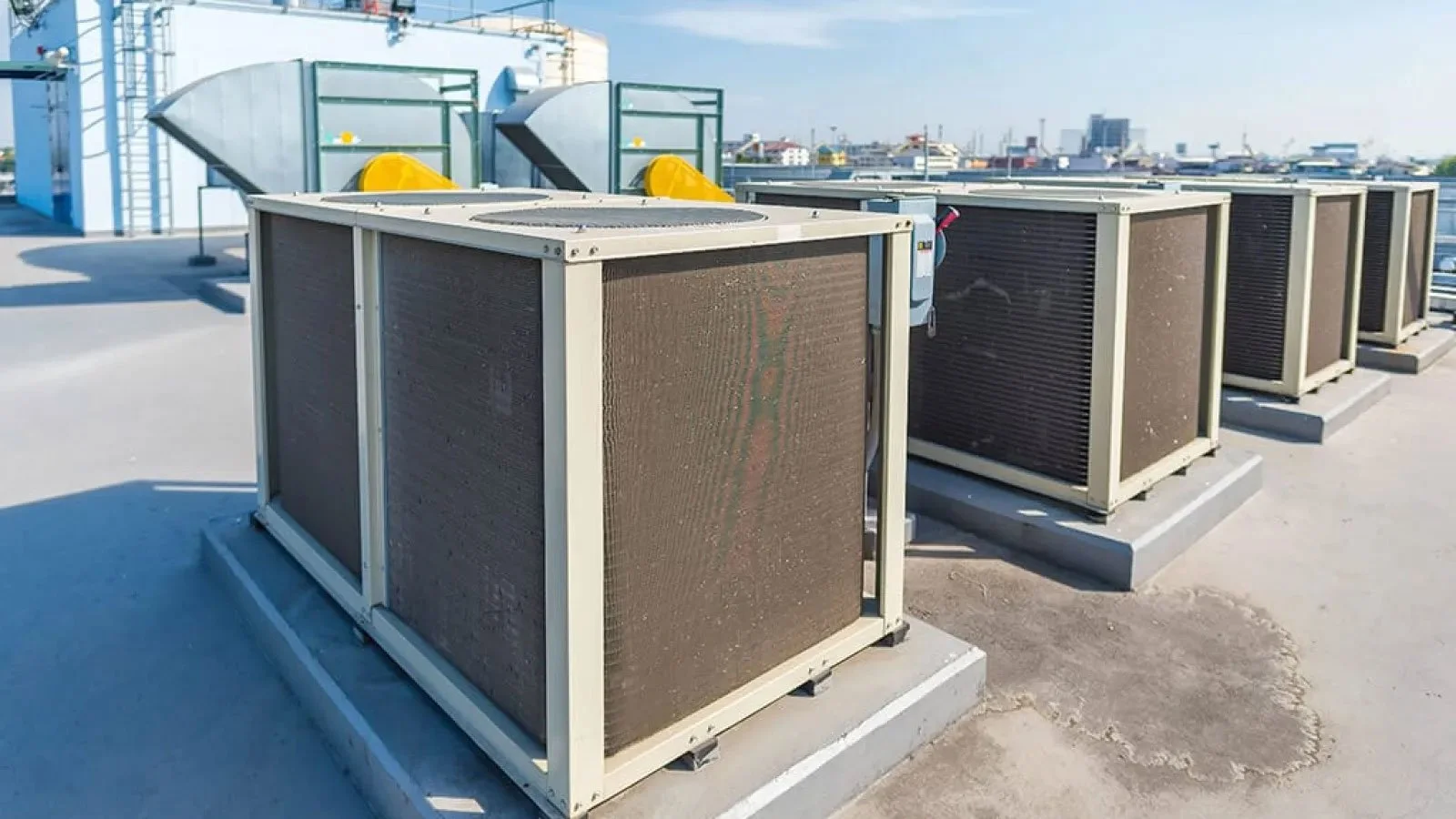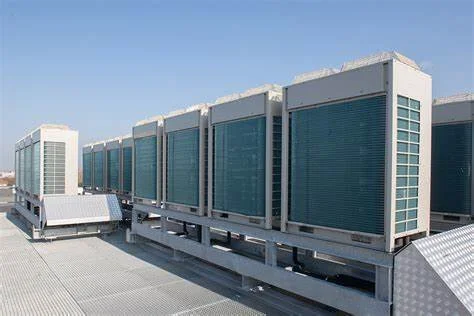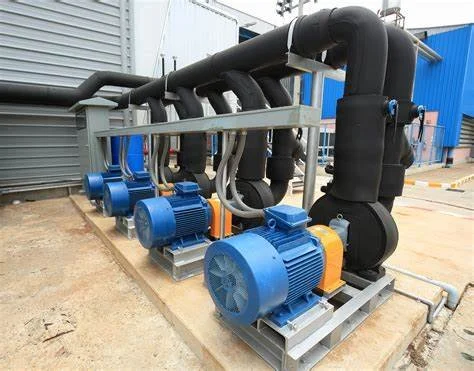
COMMERCIAL
COMMERCIAL SERVICES
A sound commercial air conditioning system is key to a comfortable environment for employees, customers, and equipment. With increasing energy costs and advancing technology, choosing the right system and maintaining it right can significantly impact operational efficiency and overhead costs. Understanding commercial air conditioning will help business owners make informed decisions.
Smart Controls and Automation
Advanced control systems like Climatec, Johnson Controls, and ECO Structure allow homeowners to set temperature, improve efficiency, and monitor system performance remotely.
Types of Commercial Air Conditioning Systems
Commercial air conditioning systems come in different types, each designed for specific business needs. Here are the most common:
Rooftop Units (RTUs):
For large commercial spaces, RTUs cool and heat while saving indoor space.
Variable Refrigerant Flow (VRF) Systems
are highly efficient systems that can cool or heat different zones independently, ideal for multi-room establishments.
Chilled Water Systems
Used for large buildings, these systems use chilled water to distribute cooling.

Factors to Consider When Choosing a Commercial AC System
Choosing the right commercial air conditioning system requires looking into these factors to ensure optimum performance and cost-effectiveness:
Building Size and Layout
The system must be sized right to cool without too much energy.
Energy Efficiency
To reduce utility bills, Get a high–efficiency unit with a good SEER (Seasonal Energy Efficiency Ratio) rating.
Indoor Air Quality (IAQ)
Proper ventilation and filtration systems are crucial for a healthy indoor environment.
Maintenance Requirements
Easy maintenance and servicing should be considered to ensure long-term performance.
Zoning Capabilities
If different building areas need independent temperature control, a system with zoning features should be prioritized.
Why Maintenance Matters
Maintaining a commercial air conditioning system is crucial to extend lifespan and performance. Maintenance includes:
● Cleaning air filters
● Checking refrigerant levels
● Inspecting and tightening electrical connections
● Cleaning condenser and evaporator coils
● Inspecting ductwork for leaks or blockages
Preventative maintenance will help businesses avoid unexpected breakdowns, costly repairs, and disruptions to operations.
Benefits of Upgrading to New AC Systems
Older commercial air conditioning systems consume more energy and need frequent repairs. Upgrading to the new system will give you the following:
● Improved energy efficiency and lower operating costs. Better temperature control and comfort.
● Compliance with current environmental standards.
● Smaller carbon footprint.
● Advanced technology for better system monitoring and automation.

The right system provides comfort, good air quality, and overall efficiency. Knowing your options and working with experts will help you make the right choice for your business. Take proactive steps to maintain and upgrade commercial AC systems and enjoy long-term cost savings and performance.
Partner with us, a trusted HVAC provider, and your commercial air conditioning system will perform at its best. Professional installation means proper sizing, placement, and compliance with building codes. Regular maintenance services detect issues early and reduce downtime and repair costs.
Contact us today to book a consult, and we’ll help you cool your business while saving you energy.



